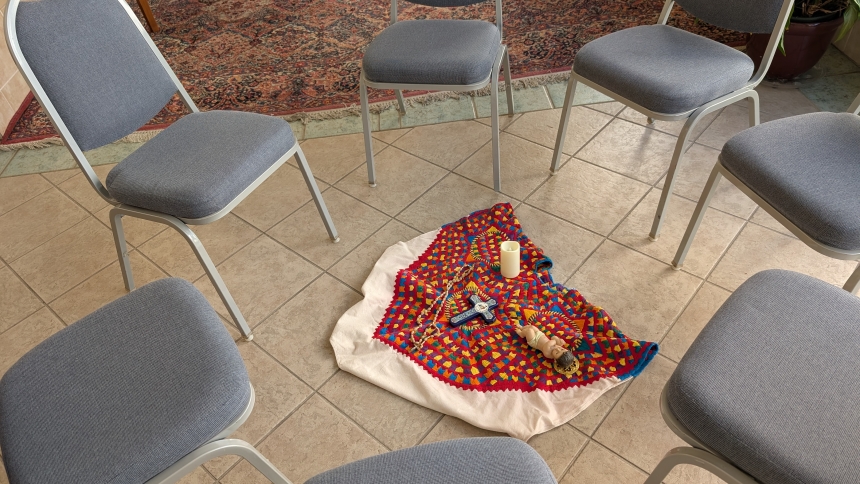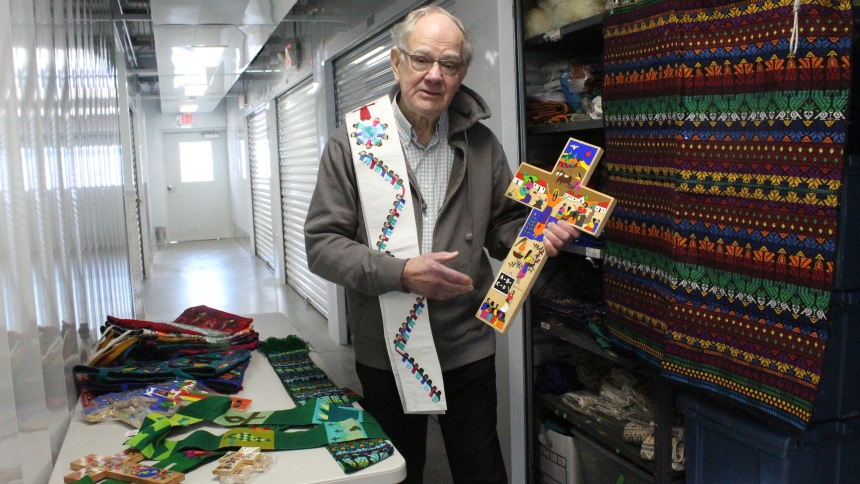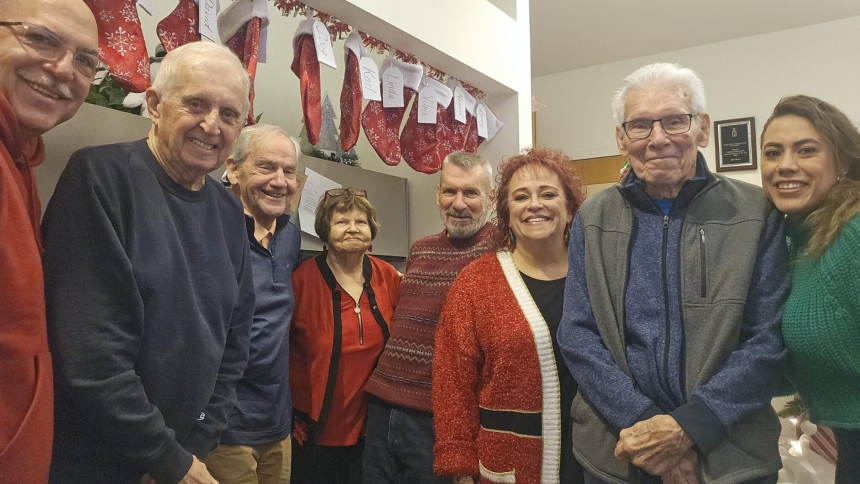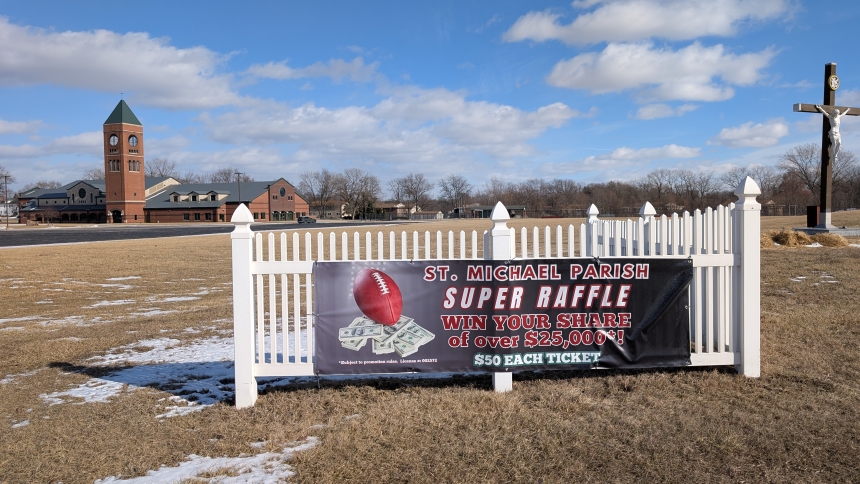
GARY – With a desire to create a space of empathy and solidarity where faithful can gather to listen, share and stand together with immigrant communities, the Diocese of Gary held a Pastoral Care for Immigrants event on Oct. 12 at the Cathedral of the Holy Angels.
The initiative was started by the Office of Intercultural Ministry and the Hispanic Ministry’s Pastoral Migratoria leadership team, which includes Sarahi Unzueta, Mayela Garza, Juan Carlos Hernandez, Nancy Garcia, Marisela Serrato and Santos Reyes.
“We’re here to gather today to pray, to lift up our hearts for immigration reform,” said facilitator Father Ed Shea, O.F.S. “We are here today to accompany our brothers and sisters. The importance of this in the city of Gary and the city of Chicago is so obvious.”
Father Shea led the group through a period of prayer that included a series of readings and songs. The hymns echoed a sentiment of unity as the group of 20 sang the verses of “Together as Brothers/Sisters,” “And They’ll Know We are Christians By Our Love” and “All Are Welcome.”
Garza, who serves as a ministry assistant for the Office of Missionary Discipleship and Evangelization, recited “A Prayer to the Creator” by Pope Francis from Fratelli Tutti:
Lord, Father of our human family,
you created all human beings equal in dignity:
pour forth into our hearts a fraternal spirit
and inspire in us a dream of renewed encounter,
dialogue, justice and peace.
Move us to create healthier societies
and a more dignified world,
a world without hunger, poverty, violence and war.
May our hearts be open
to all the peoples and nations of the earth.
May we recognize the goodness and beauty
that you have sown in each of us,
and thus forge bonds of unity, common projects,
and shared dreams. Amen.
Father Shea then invited those in attendance to move to tables set up in the hallway of the cathedral for what he called the “meat of the gathering.” The pastoral care for immigrants, he explained, is really a work of prayer and the work of the Holy Spirit.
Unzueta, a member of the diocesan Pastoral Juvenil Hispana advisory committee, further described the format for the round table discussions, better defined as peace circles. She shared that peace circles have been a practice widely used in various institutions throughout the country, including the Archdiocese of Chicago. Peace circles can be utilized to bring people of opposing views together or in situations of drug addiction or generational trauma.
The history of peace circles, Unzueta stated, dates back to indigenous people and was not only used in conflict resolution situations, but also provided an opportunity for those involved to let out any emotions they kept inside.
Having the chairs set in a circle creates a visual reminder that everyone is equal. Each group has a talking piece, which is held by the individual speaking. Once a person is done talking, they can pass the object to someone who is waiting to talk or simply place it in the center until the next person is ready to speak.
“There is no judgment,” Unzuet said. “Everyone has a chance to speak what they have in their heart. Whatever is spoken in the circle does not come out of the circle.”
The questions provided to guide the afternoon’s discussions were simple and open-ended. Three rounds of conversation asked participants: “What are the feelings that you are experiencing in this moment?,” “What do you think God is saying to us in this moment?” and “What signs of hope do you see around you?”
Hernandez, a parishioner of Our Lady of Guadalupe in East Chicago, said the prayer, discussion and the chance to meet new people were a beautiful way to give voice to fears and concerns.
“The discussions helped me remember what St. Augustine said, ‘that when a law is unjust, it is not really a law,’" Hernandez said.
As the first Pastoral Care for Immigrants meeting came to an end, attendees were treated to a variety of snacks and were invited to take home multiple handouts on resources for immigrants.
Dr. Claudia F. Sadowski, coordinator of intercultural ministry, added that what took place on that Sunday was more than a meeting, “it was a moment of communion, of listening to one another with compassion.”
She said, “As Pope Leo XIV reminds us in Dilexi te, true Christian love draws near to those who carry heavy burdens and reminds them they are not alone. Our immigrant families are part of our diocesan family, and their struggles, hopes, and dignity matter deeply to us. In the words of Pope Francis, ‘The Church is for everyone, everyone, everyone.’ With faith and tenderness, we will continue to walk together as one heart, one family, in Christ.”



